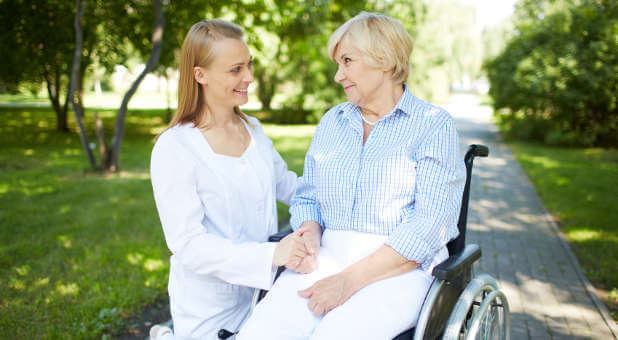Sonja Lyubomirsky, a professor of psychology at the University of California, Riverside, has studied happiness for more than 20 years. In the Jan. 24, 2013 issue of U.S. News, Lyubomirsky wrote that positive activities and acts of kindness can boost positive emotions, thoughts, and behavior, in turn improving well-being.
David Hamilton, Ph.D., has also identified five positive effects of kindness:
1. Kindness makes us happier. Dr. Hamilton found that when we do something kind for someone else, we not only feel good, we tap into something deep and profound inside of us that says, “This is who I am.” Biochemically, levels of the brain’s natural versions of morphine and heroin, which we know as endogenous opioids, are increased. They cause elevated levels of dopamine in the brain and so we get a natural high, often referred to as “Helper’s High.”
2. Kindness gives us healthier hearts. Acts of kindness are often accompanied by emotional warmth, which produces the hormone oxytocin in the brain and throughout the body. It plays a significant role in cardiovascular health, causing the release of nitric oxide, which dilates (expands) the blood vessels. This reduces blood pressure.
3. Kindness slows aging. Two culprits that speed the aging process are free radicals and Inflammation-–both of which can result from making unhealthy lifestyle choices. Remarkable research shows that oxytocin reduces levels of free radicals and inflammation and slows aging at the root level. Also free radicals and inflammation play a major role in heart disease, so this is another reason kindness is good for the heart.
There have also been references in scientific journals regarding the strong link between compassion and the activity of the vagus nerve. The vagus nerve, as well as regulating heart rate, also controls inflammation levels in the body.
4. Kindness improves relationships. Kindness reduces the emotional distance between people causing us to feel more “bonded.” It’s something that is so strong in us that it affects us at the genetic level. We are wired for kindness. The stronger the emotional bonds within groups, the greater the chances of survival, and so ‘kindness genes’ were etched into the human genome. When we are kind to each other, we feel a connection and new relationships are forged, or existing ones are strengthened.
5. Kindness is contagious. When we’re kind, we inspire others to be kind. Studies show that it actually creates a ripple effect that spreads outward to our friends and beyond–-to “3 degrees of separation.” Just as a pebble creates waves when it is dropped into a pond, so acts of kindness ripple outward touching others’ lives and inspiring kindness everywhere the wave goes.
An Amazing Story of Kindness
When A.J. Star met former University of Alabama quarterback AJ McCarron, his life changed forever—from despair to belonging and purpose. Through one act of kindness by McCarron, a disabled young man’s life was forever changed. I encourage you to watch this short video. I think it will inspire you, as it did me. We are indeed “our brother’s keeper.” It may take us out of our way a bit or cost us a little time and effort, but this is what life is all about—loving others.
Cherie Calbom, M.S., C.N., is the author of 24 books, including The Juice Lady’s Remedies for Allergies and Asthma, The Juice Lady’s Remedies for Stress and Adrenal Fatigue, The Juice Lady’s Big Book of Juices and Green Smoothies and Juicing, Fasting and Detoxing for Life. She has devoted her life to teaching people how to care for their bodies so they might complete their destiny. For more information, visit her at juiceladycherie.com.
For the original article, visit juiceladycherie.com.















































